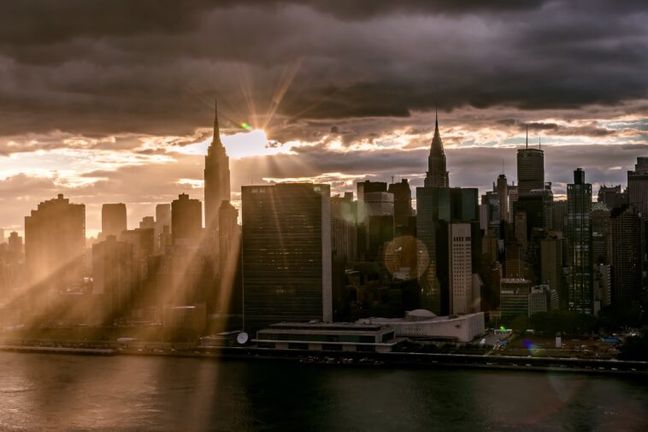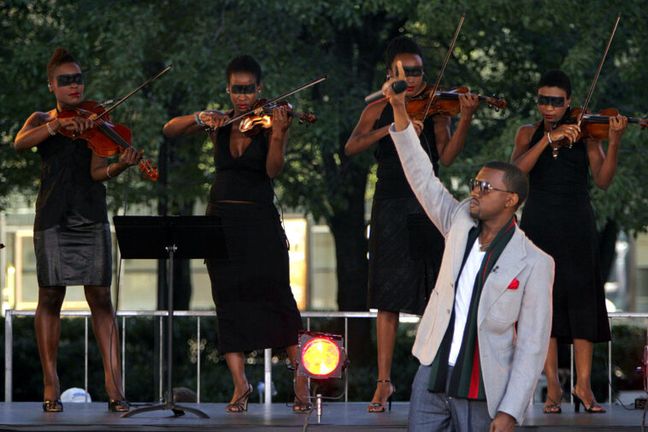A boutique New York hotel entered an agreement to operate as a homeless shelter for three years.[i] After the end of the agreement, the hotel discovered significant damage to the premises and sought insurance coverage for damage sustained during that time.[ii] After its insurer denied coverage, plaintiffs sued. A New York federal court denied the defendants’ motion to dismiss a declaratory judgment.
Facts
Back in 2017, the hotel had entered into a memorandum of understanding with a contractor for the city to provide temporary housing for homeless families with children. The contractor’s clients utilized the hotel until the contract was terminated on October 30, 2020.
Following the departure of the contractor and its clients, the hotel became aware of substantial damage to guest rooms, hallways, and common areas beyond normal wear and tear. The damage included, but was not limited to: punctures in walls and ceilings, vandalized and defaced furniture, slashed fabric headboard covers, slashed carpeting, and slashed and defaced wall hangings.
The hotel submitted a claim to its insurer for coverage under the applicable insurance policy. Its insurer disclaimed coverage, stating the damage fell within the “wear and tear” exclusion.[iii] The hotel commenced a declaratory judgment and breach of contract action against its insurer, seeking in excess of $1 million in insurance coverage.
Ambiguity Proves Fatal
The insurance policy specifically excluded damages caused by normal “wear and tear” – without defining what “wear and tear” included. Certain acts were carved out from normal “wear and tear” as “specified causes of loss,” which included acts such as vandalism. The insurer’s disclaimer letter also failed to define “wear and tear,” or “normally expected wear and tear,” a phrase which was not included in the policy.
Following discovery, the insurer moved for summary judgment, arguing in part that the wear and tear exclusion applied. The insurer further argued the hotel failed to timely notify it of any loss or damage occurring during the applicable policy period.[iv]
In turn, the hotel argued the wear and tear exclusion did not unambiguously state damage caused by human activity was specifically precluded from the policy’s scope of coverage.[v] The policy language failed to state in “clear and unmistakable language” the wear and exclusion was not limited to losses arising from natural occurrences.[vi] To demonstrate the insurer did not consider causes outside natural occurrences, the hotel cited other exclusions in the policy.[vii] In these other exclusions, the policy did account for natural or other causes.[viii]
The recent one-page decision was not clear-cut. While the hotel’s claims for consequential and punitive damages were struck, the insurer’s motion for summary judgment was denied, leaving the case open for further litigation.[ix]
Takeaway
In New York, the law governing the interpretation of policy exclusions is highly favorable to insureds.[x] Courts must apply an analysis narrowing policy exclusions, which results in rulings for coverage when both the insured and insurer present reasonable constructions of an exclusion.[xi] Therefore, when drafting policy exclusions, insurers must be cognizant of every possible scenario. Using clear and concise language in a policy can help avoid litigation down the road. Even if the case ends up going to trial, an insurer will be in a much better position if the policy is written without any ambiguities.
Keep Reading
More by this author
Sources
[i] Mandato, Jennifer, Hotel Says Insurers Must Cover Homeless Families’ Damages, Law360 (Jan. 9, 2023), https://www.law360.com/articles/1563615.
[ii] Id.
[iii] Mave Hotel Investors LLC, d/b/a The Mave Hotel v. Certain Underwrites at Lloyd’s London et al, 1:21-cv-08743 (SDNY).
[iv] Id.
[v] Mandato, Jennifer, Hotel Says Insurers Must Cover Homeless Families’ Damages, Law360 (Jan. 9, 2023), https://www.law360.com/articles/1563615.
[vi] Mave Hotel Investors LLC, d/b/a The Mave Hotel v. Certain Underwrites at Lloyd’s London et al, 1:21-cv-08743 (SDNY).
[vii] Id.
[viii] Id.
[ix] Id.
[x] Pioneer Tower Owners Ass’n v. State Farm Fire & Cas. Co., 12 N.Y.3d 302, 306 (2009).
[xi] Id.

 Author: John A. Anselmo
Author: John A. Anselmo
 Editor: Ashley Paige Fetyko
Editor: Ashley Paige Fetyko
 Cannabis Workers Allege Quota to Trim 4 Pounds a Day Violates the California Labor Code
Cannabis Workers Allege Quota to Trim 4 Pounds a Day Violates the California Labor Code
 The Ninth Circuit Reminds Us: Every Word Matters
The Ninth Circuit Reminds Us: Every Word Matters
 NO WAY, PRO SE! The Consequences of Abusing the Judicial System as a Pro Se Litigant in Colorado
NO WAY, PRO SE! The Consequences of Abusing the Judicial System as a Pro Se Litigant in Colorado
 Victim of Financial Mismanagement or Unlawful Retaliation? New Jersey City University Program Founder Claims School Retaliated After Reporting Alleged Sexual Harassment
Victim of Financial Mismanagement or Unlawful Retaliation? New Jersey City University Program Founder Claims School Retaliated After Reporting Alleged Sexual Harassment
 “Real Housewives” Gets a Reality Check
“Real Housewives” Gets a Reality Check
 Missing a Chapter: Insufficiency of Expert Deposition Testimony in Medical Malpractice Litigation
Missing a Chapter: Insufficiency of Expert Deposition Testimony in Medical Malpractice Litigation
 Crash Course: Why Summary Judgment Misses the Mark in Illinois Multi-Cause Limousine Crash Collision
Crash Course: Why Summary Judgment Misses the Mark in Illinois Multi-Cause Limousine Crash Collision
 Bitter Truths: Lead, Cadmium, and Defective Pleadings in California Chocolate Class Action
Bitter Truths: Lead, Cadmium, and Defective Pleadings in California Chocolate Class Action
 The Law of Unintended Consequences: Including Insurance Brokers in Litigation Strategy Communication May Waive the Attorney-Client Privilege
The Law of Unintended Consequences: Including Insurance Brokers in Litigation Strategy Communication May Waive the Attorney-Client Privilege
 Jury Awards a Record-Breaking $120 Million in New York Medical Malpractice Case
Jury Awards a Record-Breaking $120 Million in New York Medical Malpractice Case
 Gov. Hochul Shoots Down Proposed Damages for Emotional Suffering in Wrongful Death Cases
Gov. Hochul Shoots Down Proposed Damages for Emotional Suffering in Wrongful Death Cases
 We’re Not Friends – New York Adds Social Media Protections for Employees and Applicants
We’re Not Friends – New York Adds Social Media Protections for Employees and Applicants
 “Yeezy” Does It: Adidas Backs Off on Kanye West Connection
“Yeezy” Does It: Adidas Backs Off on Kanye West Connection
 Yorkie Dog Subject of NYPD Lawsuit Alleging Civil Rights Violations
Yorkie Dog Subject of NYPD Lawsuit Alleging Civil Rights Violations